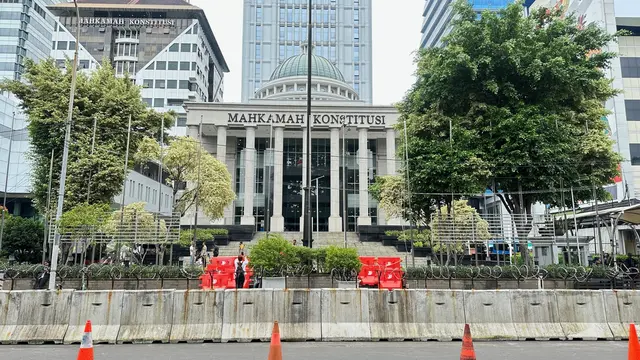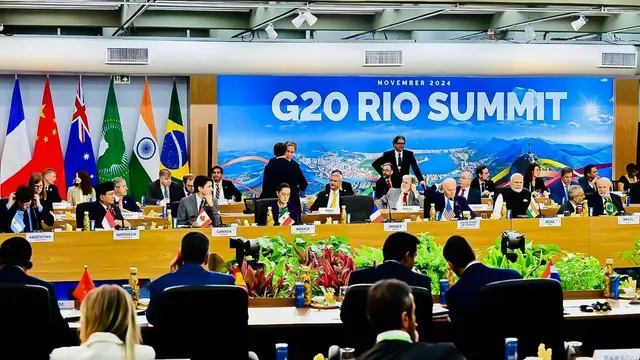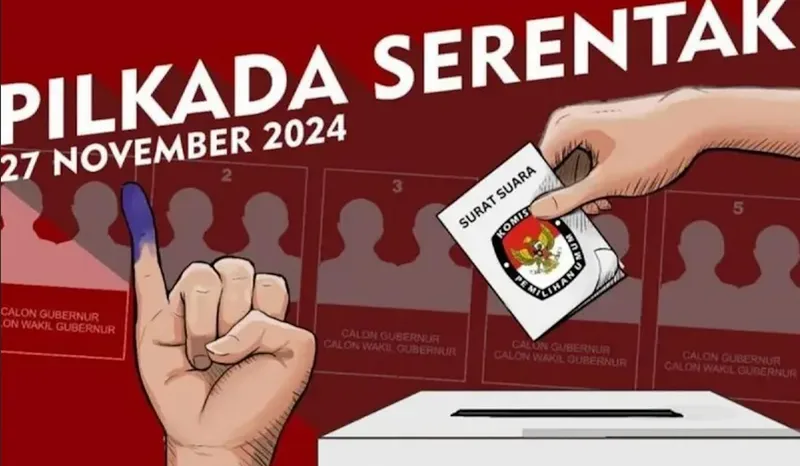Jakarta – A total of 115 contestants in the 2024 Simultaneous Regional Elections have filed lawsuits with the Constitutional Court (MK). These lawsuits were filed by pairs of candidates from various regions, including 86 pairs of regent and deputy regent candidates as well as 29 pairs of mayor and deputy mayor candidates.
Perludem researcher Iqbal Kholidin expressed public concern regarding the independence of the Constitutional Court judges in resolving the 2024 regional election disputes, considering the Constitutional Court’s track record leading up to the 2024 elections, which culminated in the ousting of Chief Justice Anwar Usman.
“However, it is also important to look at other decisions that are considered good and wise by the Constitutional Court,” said Iqbal in Jakarta, Monday, (12/9/2024).
Reflecting on the results of the 2024 Presidential Election Result Dispute (PHPU), there were 3 judges who issued dissenting opinions. This can serve as a guarantee that the Constitutional Court can still be relied upon to uphold democracy. As long as there are no judges caught in the trap of conflicts of interest.
“Although it is indeed difficult to prove indications of systemic fraud in court, there are still some judges whom we think are quite wise in deciding cases,” said Iqbal.
Meanwhile, the Executive Director of Ethical Politics, Hasyibulloh Mulyawan, believes that the dignity of the Constitutional Court (MK) has returned to provide fair decisions since the issuance of MK decision number 60/PUU-XXII/2024 regarding the threshold for regional head nominations. Where the decision annulled the plan to nominate the youngest son of former President Joko Widodo (Jokowi), Kaesang Pangarep, as the governor candidate for Central Java.
“This means that the Constitutional Court is once again demonstrating its dignity in resolving electoral disputes. Decision number 60 shows that there is already neutrality,” said Hasyibulloh.
However, the public must also monitor the 2024 Pilkada dispute hearings to ensure the MK remains independent.

“The public must become partners with the Constitutional Court to oversee the electoral disputes. When the public monitors what the Constitutional Court does, it means the decisions will align with the public’s decisions, like Constitutional Court decision number 60,” he said.
“That’s why what is needed right now is how the public can actively oversee the electoral disputes contested in the Constitutional Court,” he continued.
The same thing was also said by the Election Law Lecturer at the Faculty of Law, University of Indonesia, Titi Anggraini. He said that currently, the Constitutional Court has shown significant improvements in performance regarding its commitment to upholding democracy.
For example, she said, besides issuing decision 60/PUU-XXII/2024 which changed the threshold for regional head nominations, the Constitutional Court also ruled that ASN and the police who are not neutral can be prosecuted.
“This is a breath of fresh air for a democratic election,” said Titi.
For that reason, she urged the public to continuously remind the Constitutional Court to work transparently and uphold democratic values.
“We also always remind political actors not to ever tempt and disturb the integrity of the Constitutional Court. So, the responsibility for independence is not only the internal responsibility of the Constitutional Court but also includes society, political parties, and election organizers,” he said.
The Constitutional Court, he said, must also be able to maintain its independence in deciding this regional election dispute case.
“The public and the media must be able to oversee and ensure that there is no intervention from any party.” Where all evidence and trial processes can be monitored by the public,” he said.
Meanwhile, the Executive Director of Indonesia Political Opinion (IPO), Dedi Kurnia Syah, said that lawsuits in the district/city areas are precisely vulnerable to being infiltrated by case brokers.
Meanwhile, for highly contested areas, such as Jakarta, there is a very low possibility that the Constitutional Court will be disturbed by criminals.
“Not all lawsuits will be witnessed by the public, and it is the lawsuits in urban and regency areas that are vulnerable to infiltration,” said Dedy.






Leave a Reply